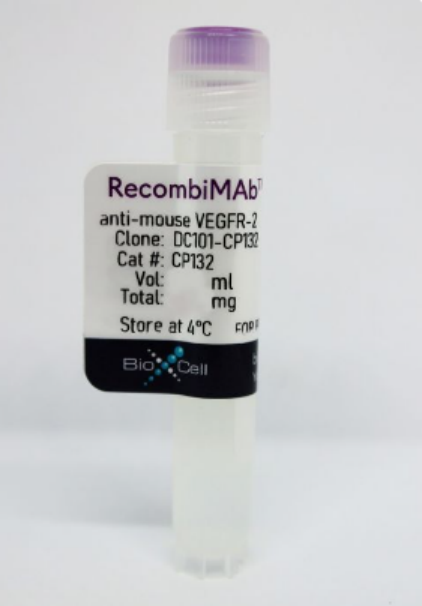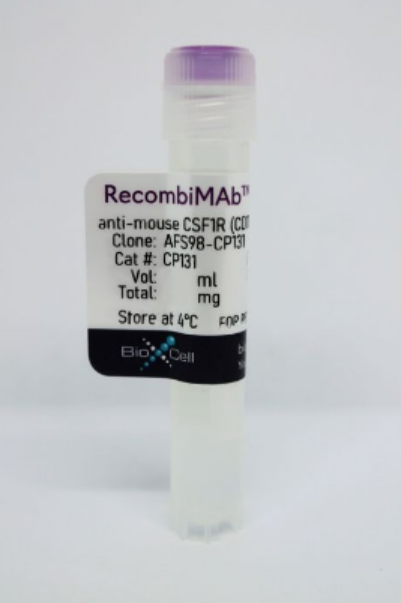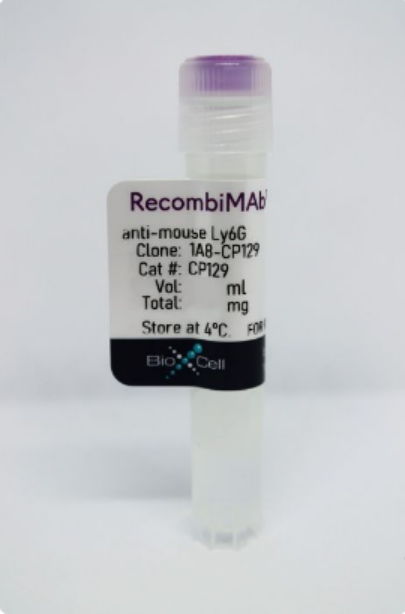BioXCell热销产品–RecombiMAb anti-mouse CTLA-4 (CD152) (LALA-PG)
BioXCell热销产品–RecombiMAb anti-mouse CTLA-4 (CD152) (LALA-PG)
产品描述:
9D9-CP008单克隆抗体是原始9D9单克隆抗体的重组嵌合型抗体。可变结构域序列与原始9D9克隆号相同,但是恒定区序列已经从小鼠IgG2b变为小鼠IgG2a。9D9-CP008单克隆抗体在Fc片段中也含有LALA-PG突变,使其无法与内源性Fcγ受体结合。
9D9-CP008单克隆抗体能与小鼠CTLA-4(细胞毒性T淋巴细胞抗原-4)反应,CTLA-4也称为CD152。CTLA-4是一种33 kDa的细胞表面受体,由属于免疫球蛋白超家族CD28家族的Ctla4基因编码。CTLA-4在活化的T淋巴细胞和B淋巴细胞上表达。CTLA-4在结构上类似于T细胞共刺激蛋白CD28,两种分子都与B7家族成员B7-1 (CD80)和B7-2 (CD86)结合。在与配体结合时,CTLA-4负调节细胞介导的免疫反应。CTLA-4在诱导和/或维持免疫耐受、胸腺细胞发育和保护性免疫调节中起作用。CTLA-4在免疫下调中的关键作用已经在CTLA-4缺陷小鼠中得到证实,这些小鼠在3-5周龄时由于淋巴增生性疾病的发展而死亡。CTLA-4目前是肿瘤免疫治疗中的热门免疫检查点靶点之一。
产品详情:
|
产品名称 |
RecombiMAb anti-mouse CTLA-4 (CD152) (LALA-PG) |
|
产品货号 |
CP008 |
|
产品规格 |
1mg |
|
反应种属 |
Mouse |
|
克隆号 |
9D9-CP008 |
|
同种型 |
Mouse IgG2b(switched from mouse IgG2a) |
|
免疫原 |
Not available or unknown |
|
实验应用 |
in vivo CTLA-4 neutralization* Western blot* *Reported for the original mouse IgG2b 9D9 antibody |
|
产品形式 |
PBS, pH 7.0,Contains no stabilizers or preservatives |
|
纯度 |
>95%, Determined by SDS-PAGE |
|
聚合 |
<5%, Determined by SEC |
|
无菌处理 |
0.2 µm filtration |
|
纯化方式 |
Protein A |
|
分子量 |
150 kDa |
|
小鼠病原检测 |
Ectromelia/Mousepox Virus: Negative Hantavirus: Negative K Virus: Negative Lactate Dehydrogenase-Elevating Virus: Negative Lymphocytic Choriomeningitis virus: Negative Mouse Adenovirus: Negative Mouse Cytomegalovirus: Negative Mouse Hepatitis Virus: Negative Mouse Minute Virus: Negative Mouse Norovirus: Negative Mouse Parvovirus: Negative Mouse Rotavirus: Negative Mycoplasma Pulmonis: Negative Pneumonia Virus of Mice: Negative Polyoma Virus: Negative Reovirus Screen: Negative Sendai Virus: Negative Theiler’s Murine Encephalomyelitis: Negative |
|
保存条件 |
抗体原液保存在4°C,不能冷冻保存。 |
|
推荐抗体稀释液 |
InVivoPure pH 7.0 Dilution Buffer(货号IP0070) |
该产品自上市已被多篇SCI文献引用,品质有保证,以下是部分已发表的文献引用:
|
应用 |
文章 |
|
体内CTLA-4中和 (in vivo CTLA-4 neutralization) |
1. Dai, M., et al. (2015). ‘Curing mice with large tumors by locally delivering combinations of immunomodulatory antibodies’ Clin Cancer Res 21(5): 1127-1138. 2. Zippelius, A., et al. (2015). ‘Induced PD-L1 expression mediates acquired resistance to agonistic anti-CD40 treatment’ Cancer Immunol Res 3(3): 236-244. 3. Redmond, W. L., et al. (2014). ‘Combined targeting of costimulatory (OX40) and coinhibitory (CTLA-4) pathways elicits potent effector T cells capable of driving robust antitumor immunity’ Cancer Immunol Res 2(2): 142-153. 4. Condamine, T., et al. (2014). ‘ER stress regulates myeloid-derived suppressor cell fate through TRAIL-R-mediated apoptosis’ J Clin Invest 124(6): 2626-2639. 5. Muller, P., et al. (2014). ‘Microtubule-depolymerizing agents used in antibody-drug conjugates induce antitumor immunity by stimulation of dendritic cells’ Cancer Immunol Res 2(8): 741-755. 6. Bulliard, Y., et al. (2013). ‘Activating Fc gamma receptors contribute to the antitumor activities of immunoregulatory receptor-targeting antibodies’ J Exp Med 210(9): 1685-1693. |
更多产品详情请咨询 BioXCell 中国代理——上海金畔生物




